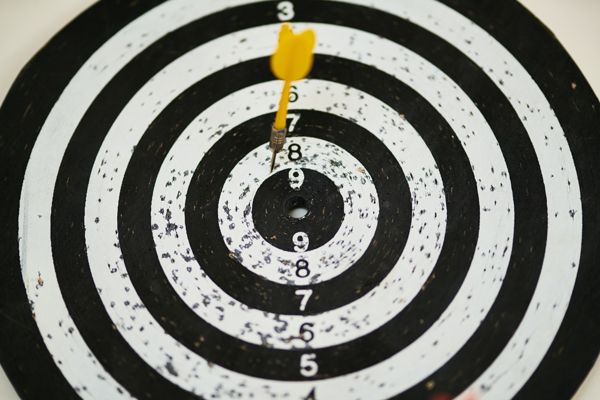Tax time is fast approaching, which makes now the best time to take control of your money. Budgeting isn’t the sexiest topic, but it is incredibly important if you’re a savvy shopper looking for ways to save your hard earned cash. Managing your money is easy when you feel like it, but it’s hard to maintain that motivation and discipline over the long-term.
If you’re looking to make every day just that little bit more rewarding, budgeting is an important tool you can use to ensure you and those you love are getting the most out of your money.
Setting financial goals

Why do you need a budget?
Maybe it's saving for a new car or home, maybe it’s the desire to get free from debt or maybe you just want your spending to better reflect your values. Whatever your goals, it’s important to articulate what you hope to achieve with your budget.
A study from the University of Maryland found that psychology plays a huge role in the success of budgeting. The process of setting financial objectives and budgeting towards those goals makes it more likely that those milestones will be reached because you’re more emotionally invested, more motivated and therefore less likely to cheat.
Once you’ve narrowed down your goals, write them down and put them somewhere you can see it. That regular reminder will help you keep on track as you begin to budget more effectively.
Calculating your income

Making the best use of your money starts with understanding the many sources of income you have available to you. Income can include money you receive from wages, a side hustle, income from investments or alimony or child support.
Creating passive income streams
If you’re looking for ways to bolster your monthly income, you could consider earning passive income. Depending on whether you have spare time, spare money, spare skills or spare assets, you can develop a passive income stream that helps increase the amount of money flowing into your bank account. It’s a great way to help you reach your financial goals quicker.
Interrogate your spending habits

Budget’s aren’t designed to make you stop spending altogether, they're designed to organise your spending in a way that empowers you to reach your financial goals. Effective budgets are realistic budgets. So the first step to creating a budget that will move you towards your desired outcome is to separate your spending into essential and non-essential categories.
Bank and credit card statements are a great place to start when it comes to examining your month-to-month expenses. Categorise each expense into either essential or non-essential categories, that’ll give you a good indication of how much you need to spend and how much you want to spend each month. From there you can break those expenses down into more specific categories such as rent, groceries, entertainment, insurance etc.
Easy ways to minimise your spending
Once you’re aware of how much you spend a month across a variety of categories it’s time to evaluate what is important to maintain and what things you can do to minimise unnecessary expenses. This process is a completely personal one, but here are three simple ways you can reduce your spending.
Avoid being over-insured
Insurance is an important part of owning a home, getting good medical cover and reducing the risk of life getting in the way of your plans. As people move from life stage to life stage, they often don’t take the time to reassess their current circumstances to make sure their insurance premiums match their needs. This can sometimes result in overpaying on premiums you no longer need. Compare Club makes it easy to save money on your big household bills from health insurance to home loans and more. If you’re looking to reduce expenses they’re a great place to start.
Sell what you don’t need
The rise of the sharing economy has made it much easier to make money on household items you no longer need or want. Online marketplaces like eBay make it really easy to get some easy cash for furniture, appliances, clothing or hobby items you may not use anymore.
Shop with Cashrewards and other loyalty programs
When it comes to reducing how much you spend, making the most of Cashrewards and loyalty marketing programs is a great way to squeeze added value out of your everyday life. With over 1500+ brands our members can save on daily expenses by shopping both online and in-store. We also partner alongside other rewards programs and financial services like Afterpay, Zip and countless other affiliates to help you budget your money better.
Review your budget regularly

Finally, in order to successfully maintain your budget and achieve your financial goals you’ll need to make time to constantly review. Setting up a monthly check-in to make adjustments and track your success is crucial for reaching your long-term goals. Work out where you over-spent or where you spent less than you thought and adjust your budget accordingly. Life changes over time so changes to your budget will need to reflect that, but once you’ve established a solid structure, making little adjustments is easy.
If you’d like to learn more about budgeting, or get access to budgeting tools and resources visit moneysmart.gov.au.



